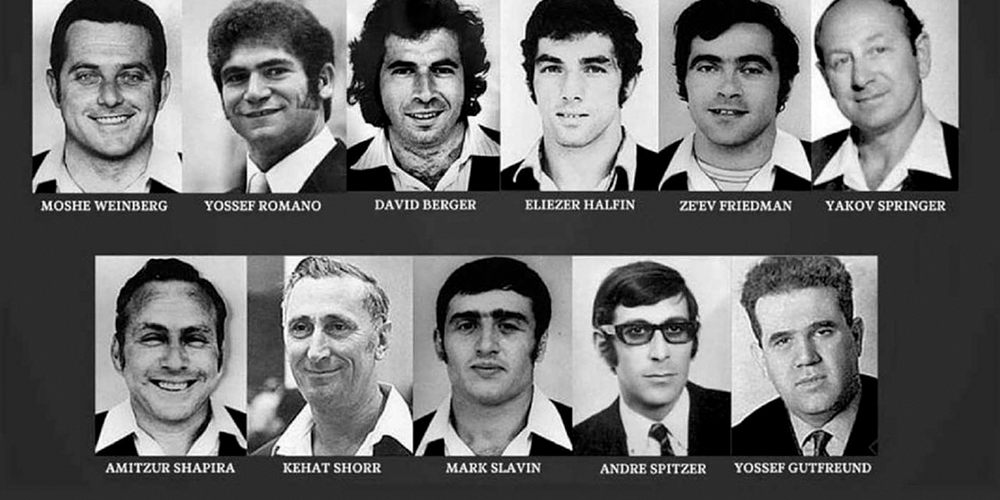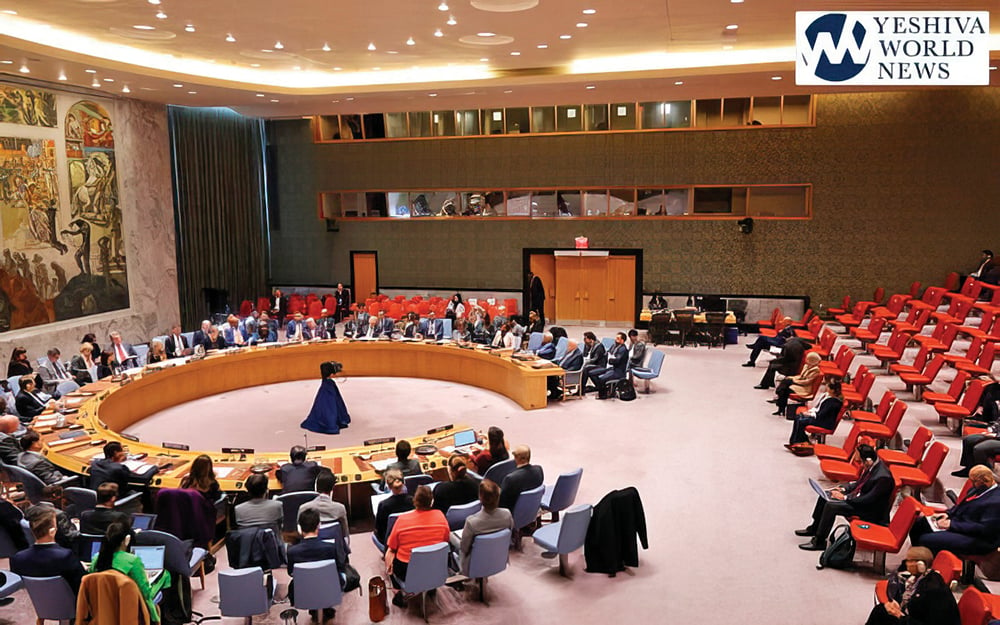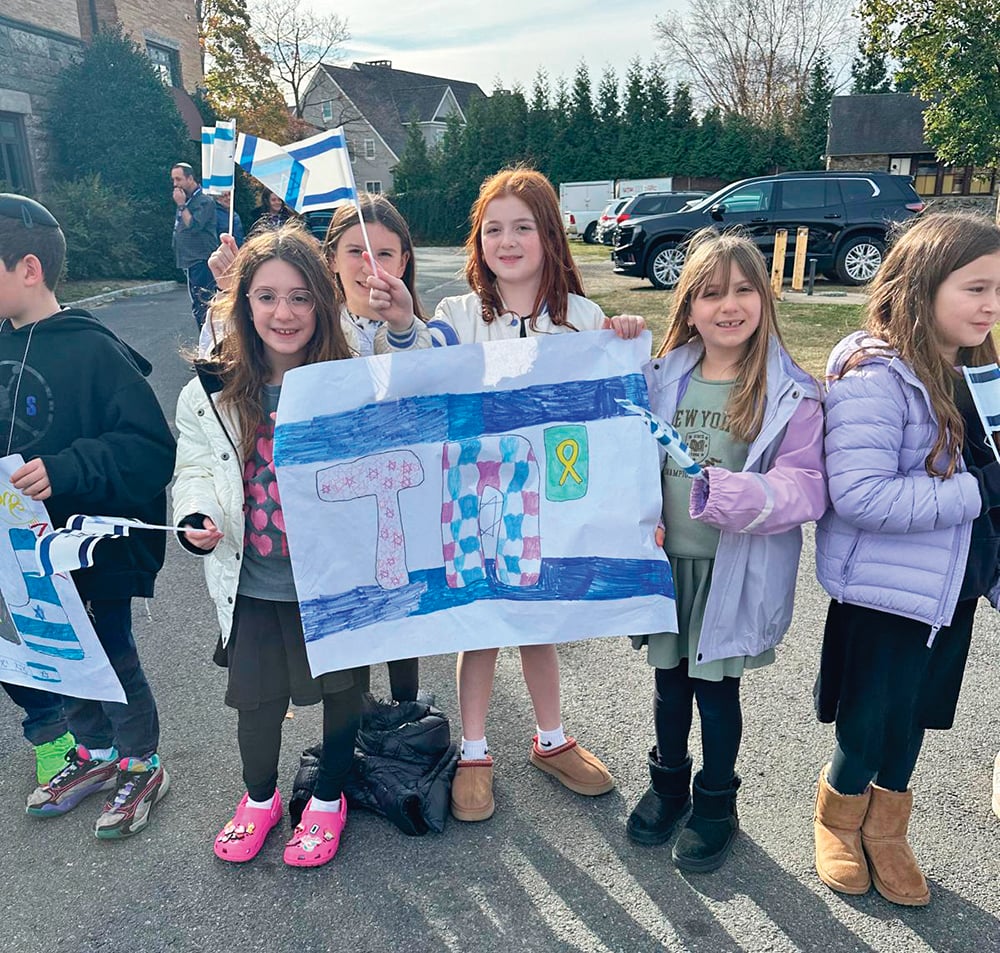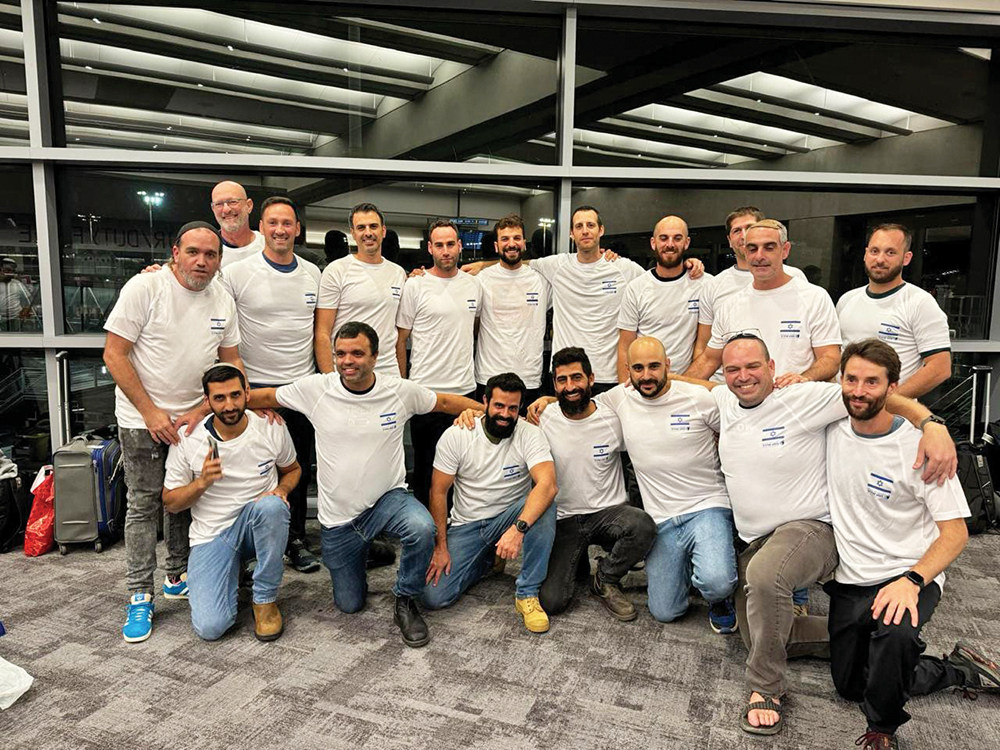
This week marks 52 years since the September 5, 1972 Munich massacre, the darkest day in Olympic history, when 11 Israeli athletes and coaches were slaughtered by Palestinian terrorists.
In this article, we remember what happened on that day and the 11 Israelis killed.
It feels remiss, though, not to mention some of the ways in which antisemitism reared its ugly head just weeks ago at the Paris Olympics: Israeli athletes received death threats; crowds chanted “Heil Hitler” and made the Nazi salute during an Israel-Paraguay soccer game; and a French lawmaker on the far left said that Israeli athletes were not welcome at the Olympics.
Antisemitism may at times lay dormant, but it never dies.
September 5, 1972
On September 5, 1972, Palestinian terrorists from the group Black September scaled a fence surrounding the Olympic Village in Munich, and forced their way into the quarters of the Israeli Olympic team. Two Israelis were killed in the Olympic Village.
The remaining nine Israeli hostages were taken in helicopters by the terrorists to a German air base, where a botched rescue attempt by the West German police ensued. All of the hostages and one West German police officer were killed.
The Two Athletes Killed in The Olympic Village
Moshe Weinberg, Wrestling Coach
The terrorists broke into the apartment Moshe Weinberg was in, and he fought back but was shot. When the terrorists then forced him to take them to the apartments of other Israelis, Weinberg reportedly led them to the wrestlers and weightlifters, thinking that they might be able to successfully fight their attackers off.
Weinberg was again able to fight the terrorists when they were taking him and other hostages back to the first apartment. Unfortunately this time, the terrorists fatally shot Weinberg and threw his body into the street.
Moshe had a wife, Mimi, and a 1-month-old son, Guri, when he was killed. Guri became an actor, portraying his father in Steven Spielberg’s 2005 movie, “Munich.”
When asked by The Jewish Link what he would like people to know about his father, Guri stated, “He was abandoned by his parents and raised by his grandparents. Having a family of his own was his number one dream and [he] couldn’t wait to come home from the Olympics.”
Yossef Romano, Weightlifter
Yossef Romano suffered an injured knee at the Olympics and was scheduled to fly back to Israel for an operation on September 6.
He never made that flight. The terrorists broke into the apartment Romano was in, taking him and others to a different apartment. Despite being injured Romano bravely fought back, but the terrorists shot and killed him. A 2015 report revealed details of the brutal torture the terrorists inflicted on Romano before killing him.
After his death, Romano’s mother committed suicide. Several years later his brother died by suicide. Ilana Romano, the athlete’s widow, said after viewing “Munich” in 2005, “I hope the movie will help us reach billions of people we haven’t reached in the past 33 years.” She and Ankie Spitzer, widow of murdered athlete Andre Spitzer, led the fight for the Olympics to hold a moment of silence, which finally happened in 2021 at the Tokyo Olympics.
The Nine Athletes Killed
At the German Air Base
David Berger, Weightlifter
Born in Ohio, David Berger was raised in the U.S., graduated from Tulane University with a psychology degree, and Columbia University with an MBA and a law degree. He later emigrated to Israel.
Berger’s body was returned to the United States on an Air Force jet ordered by President Richard Nixon.
The David Berger National Memorial is a sculpture located at the Mandel Jewish Community Center of Cleveland. The sculpture is affiliated with the National Parks Service.
Ze’ev Friedman, Weightlifter
Ze’ev Friedman competed at the 1972 Munich Olympic Games and placed 12th in his competition, then one of the best achievements of any Israeli athlete.
Friedman wrote postcards to his family while in Munich. One of the postcards included best wishes for the New Year. The cards didn’t reach his family until after he was killed.
Yossef Gutfreund, Wrestling Referee
Yossef Gutfreund was sleeping in the Olympic Village when he heard a noise outside the door of his apartment around 4:30 a.m. He headed to the door, and when it began to open he saw masked men with guns.
Gutfreund threw his body against the door and screamed to warn his fellow Israelis, allowing his roommate and weightlifting coach, Tuvia Sokolsky, to escape. He also awakened race-walker Dr. Shaul Ladany who was in an adjacent apartment, allowing him to escape as well.
Eliezer Halfin, Wrestler
In 2011, Eliezer Halfin’s National Identification Card was returned to his sister, Rima Goldwasser, in a ceremony at Israel’s Foreign Affairs Ministry. The card had been hidden for almost four decades by a German police officer whose son gave it to the Israeli Embassy in Germany after his father died.
Deputy Foreign Minister Danny Ayalon said during the ceremony, “I call on the government of Germany to make every effort to locate other documents that are perhaps being held somewhere, because hundreds of documents are still missing.”
Amitzur Shapira, Track and Field Coach
One of the highlights of Amitzur Shapira’s career was discovering and coaching Israeli Olympian Esther Roth-Shahamorov, one of the greatest sportswomen of Israel.
Shapira’s brother Arik said when events were unfolding on September 5, 1972, “Every Israeli installation, whether it be an airliner, or some information office, is a likely target. That is a general truth and we all know it.”
In February 2024, Amitzur Shapira’s grandson Lahav Shapira was beaten up outside a Berlin bar in an antisemitic attack.
Kehat Shorr, Shooting Coach
In one of the most chilling images from the hostages’ captivity, Kehat Shorr is seen in a photograph next to fencing coach Andre Spitzer at the second-floor window of their building. The pair had guns pointed at them while talking to German officials.
In 2016, the Israeli mission to the United Nations held a memorial event at the U.N. to honor the Israelis murdered in the Munich Massacre.
During her remarks, Shorr’s daughter Michal Shahar stated, “The evil and terror that killed my father and the other Israeli athletes has only increased since that terrible day 44 years ago. The U.N., like the Olympics, represents the hope that the nations of the world will work together for a better future. I see the terrible attacks in Israel and around the world, like in Germany recently, and I hope that my words today will encourage all countries to put politics aside, and unite against terrorism.”
Mark Slavin, Wrestler
At only 18 years old, Mark Slavin was the youngest Israeli killed at the Munich massacre. Born in Minsk in the USSR, now Belarus, Slavin took up wrestling at a young age and used his sport to defend himself against antisemitic attacks in the former Soviet Union.
Slavin was favored to medal at the 1972 Games, but he never got to compete.
Slavin had two siblings at the time of his death. His third sibling, Mika, was born after his death.
Andre Spitzer, Fencing Coach
Along with Shorr, Andre Spitzer appeared in the photograph at the second-floor window of their building. Spitzer was hit in the head with a rifle when he tried to give information to the negotiators.
While at the Olympics, Spitzer and his wife, Ankie, were called to the Netherlands because their infant daughter, who was staying with Ankie’s parents, had become sick. When they arrived, they learned that their daughter would be fine, and Andre then returned to Munich.
For years, Ankie Spitzer and Ilana Romano spearheaded the fight to officially recognize the Israelis murdered in the Munich massacre at the Olympic Games. A moment of silence was finally observed at the Opening Ceremony of the 2021 Tokyo Olympics.
Yakov Springer, Weightlifting Judge
Yakov Springer was a Shoah survivor and moved to Israel in the 1950s, where he devoted much of his time to teaching physical education in schools.
Springer played a key role in setting up the sport of weightlifting in Israel.
It has been reported that Springer was hesitant to attend the Munich Olympics, but he went as an act of solidarity with his fellow Israelis.
“They’re All Gone”
Television networks broadcast the terrorism at the Games in real time to an audience of almost a billion people.
Although initial reports actually stated that the rescue mission was a success, sportscaster Jim McKay ultimately announced to the world: “They’re all gone.”
This week is indeed a heavy week for the Jewish people. At the same time we are marking the anniversary of the 11 Israeli athletes killed at the 1972 Games, we are also mourning the six Israeli hostages killed by Hamas terrorists in tunnels in Gaza. The hostages killed are: Ori Danino, 25; Carmel Gat, 40; Hersh Goldberg-Polin, 23; Alexander Lobanov, 32; Almog Sarusi, 27; and Eden Yerushalmi, 24.
In chilling words Guri Weinberg, son of Munich Olympian Moshe Weinberg, posted on Instagram about these six hostages: “[They’re] all gone.”
May all of their memories be a blessing.
Judith Falk is the creator of the Upper West Side Shtetl Facebook Group. You can follow her on instagram @upperwestsideshtetl. She is a lawyer by day and a former legal reporter.











